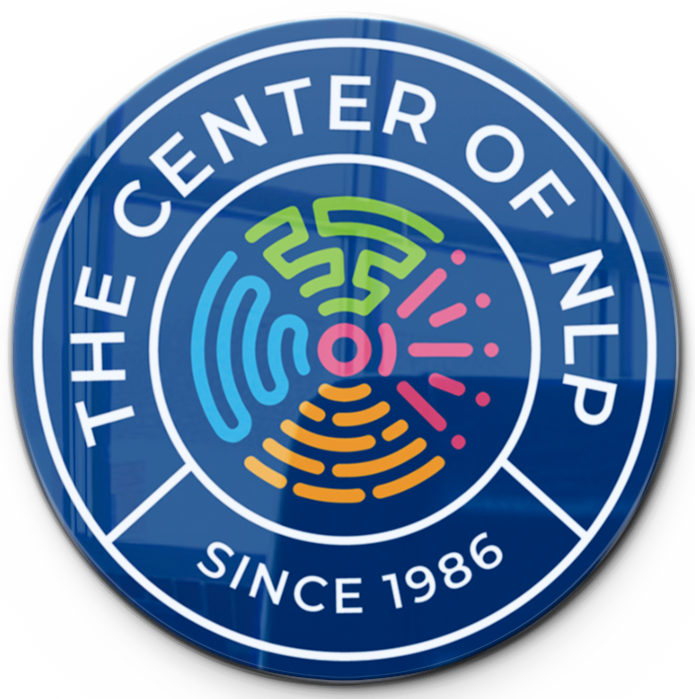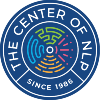CONTACT US info@centerofnlp.com

NLP Techniques for Managing Stress and Building
Introduction
In today's fast-paced and demanding world, stress has become a standard part of our lives. Whether work-related pressures, personal challenges, or the constant barrage of information, stress can harm our mental and physical well-being. However, Neuro-Linguistic Programming (NLP) offers practical techniques to help manage stress and build resilience. This article will explore various NLP techniques that empower individuals to overcome anxiety and enhance their ability to bounce back from adversity.
1. Understanding Neuro-Linguistic Programming (NLP)
Neuro-Linguistic Programming (NLP) is a psychological approach that explores the connections between neurological processes, language, and behavioral patterns learned through experience. It focuses on understanding the strategies used by successful individuals and applying them to achieve desired outcomes. NLP techniques can effectively manage stress by reshaping our thoughts, emotions, and behaviors.
2. The Impact of Stress on Mental and Physical Health
Stress can have a significant impact on our overall well-being. It can lead to anxiety, depression, a weakened immune system, high blood pressure, and other health problems. Chronic stress can also impair cognitive functions, affect decision-making abilities, and hinder personal growth. Therefore, developing effective strategies to manage stress and build resilience is essential.
3. Recognizing the Signs of Stress
Before we delve into NLP techniques, it's crucial to recognize the signs of stress. These may include physical symptoms like headaches, muscle tension, fatigue and emotional indicators such as irritability, mood swings, and difficulty concentrating. By being aware of these signs, we can address stress more effectively.
4. Anchoring Technique: Managing Stress in the Moment
One powerful NLP technique is anchoring, which helps manage stress. It involves associating a specific physical or mental cue with a desired calmness or confidence. By repeatedly practicing this technique, we can trigger the desired state whenever we encounter a stressful situation.
5. Reframing Technique: Shifting Perspectives and Empowering Beliefs
The reframing technique in NLP involves shifting our perspectives and beliefs about a particular situation. Viewing a stressful event from a different angle can reframe it as an opportunity for growth or learning. This empowers us to respond to stress more positively and constructively.
6. The Power of Language: Using Positive Affirmations
Language plays a crucial role in shaping our thoughts and emotions. NLP encourages positive affirmations to counteract negative self-talk and promote self-belief. By repeating affirmations such as "I am capable of handling any challenge," we can rewire our minds to focus on resilience and inner strength.
7. Timeline Therapy: Releasing Past Traumas
Past traumas can contribute to ongoing stress and hinder our ability to build resilience. NLP's timeline therapy technique helps individuals release negative emotions associated with past experiences. By revisiting those memories and reframing them with a more empowering perspective, we can free ourselves from the emotional burdens that hold us back.
8. Visualizations and Guided Imagery: Creating Calmness and Resilience
Visualization exercises and guided imagery are powerful NLP techniques for managing stress and building resilience. By vividly imagining ourselves in a calm and peaceful environment, we activate the relaxation response in our bodies. This practice helps reduce stress levels and enhances our ability to cope with challenging situations.
9. Setting and Achieving Goals with NLP
NLP provides practical tools for setting and achieving goals, which can contribute to stress reduction and resilience building. Using SMART goals (Specific, Measurable, Achievable, Relevant, and Time-bound) and chunking (breaking larger goals into smaller, manageable steps) can create a clear roadmap for success.
10. Building Rapport and Social Support
Social support plays a vital role in managing stress and building resilience. NLP techniques focus on building rapport and effective communication with others. By improving our interpersonal skills, we can create a supportive network that helps us navigate stressful situations and provides a sense of belonging.
11. Mindfulness and Meditation Practices
Mindfulness and meditation are widely recognized practices for stress reduction. NLP incorporates these techniques to cultivate present-moment awareness and promote a calm and focused mind. Integrating mindfulness into our daily routine can reduce stress, increase self-awareness, and enhance overall well-being.
12. Physical Well-being and Stress Management
Physical well-being is closely linked to stress management. NLP emphasizes maintaining a healthy lifestyle, including regular exercise, proper nutrition, and adequate sleep. These factors contribute to our resilience and ability to cope with stress effectively.
13. NLP for Emotional Intelligence and Self-awareness
Emotional intelligence and self-awareness are essential for managing stress. NLP techniques help individuals better understand their emotions, thoughts, and behaviors. Enhancing emotional intelligence allows us to regulate our emotions, make better decisions, and respond to stress more adaptively.
14. Overcoming Procrastination and Boosting Productivity
Procrastination can contribute to increased stress levels and hinder our ability to build resilience. NLP techniques offer strategies to overcome procrastination and boost productivity. By identifying the underlying causes of procrastination and implementing effective time management techniques, we can reduce stress and accomplish our goals more efficiently.
To Sum Up!
Neuro-Linguistic Programming (NLP) provides valuable techniques for managing stress and building resilience. By incorporating NLP practices into our daily lives, we can reframe stressful situations, develop effective coping strategies, and enhance our overall well-being. Remember, it takes approach and commitment to reap the full benefits of NLP techniques, so start implementing them gradually and observe the positive changes in your life.
FAQs (Frequently Asked Questions)
Q1: How long does it take to see results with NLP techniques for stress management?
A1: The timeframe for experiencing results with NLP techniques varies from person to person. Some individuals may notice improvements relatively quickly, while others require more time and practice. Consistency and persistence are vital to achieving long-lasting results.
Q2: Can NLP techniques be used professionally to manage workplace stress?
A2: Absolutely! NLP techniques can be applied in various contexts, including professional settings. Techniques such as anchoring, reframing, and goal setting can help individuals effectively manage workplace stress and enhance their resilience.
Q3: Are NLP techniques suitable for everyone?
A3: NLP techniques can benefit individuals from all walks of life. However, it's important to note that NLP is not a substitute for professional mental health treatment. If you have severe or chronic stress, it's advisable to seek guidance from a qualified healthcare professional.
Q4: Can NLP techniques be self-taught, or is it recommended to work with a trained practitioner?
A4: While self-study can provide a basic understanding of NLP techniques, working with a trained NLP practitioner can offer deeper insights and personalized guidance. They can help tailor the techniques to your needs and support you throughout your journey.
Q5: Where can I learn more about NLP and its applications for stress management?
A5: There are numerous resources available, including books, online courses, and workshops, that delve into the theory and practice of NLP. Exploring reputable sources and seeking recommendations from trusted professionals is recommended.
Copyright 1989 - 2024 | The Center of NLP © | All Rights Reserved

